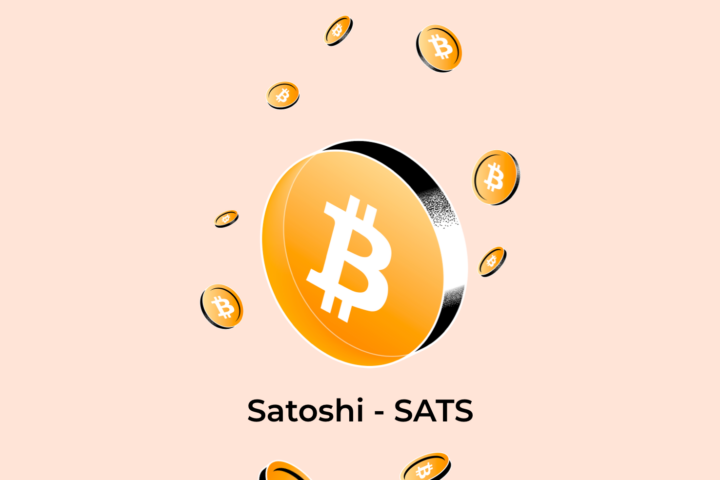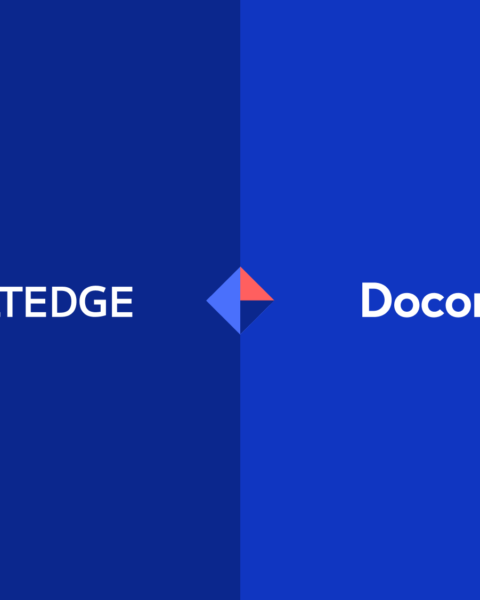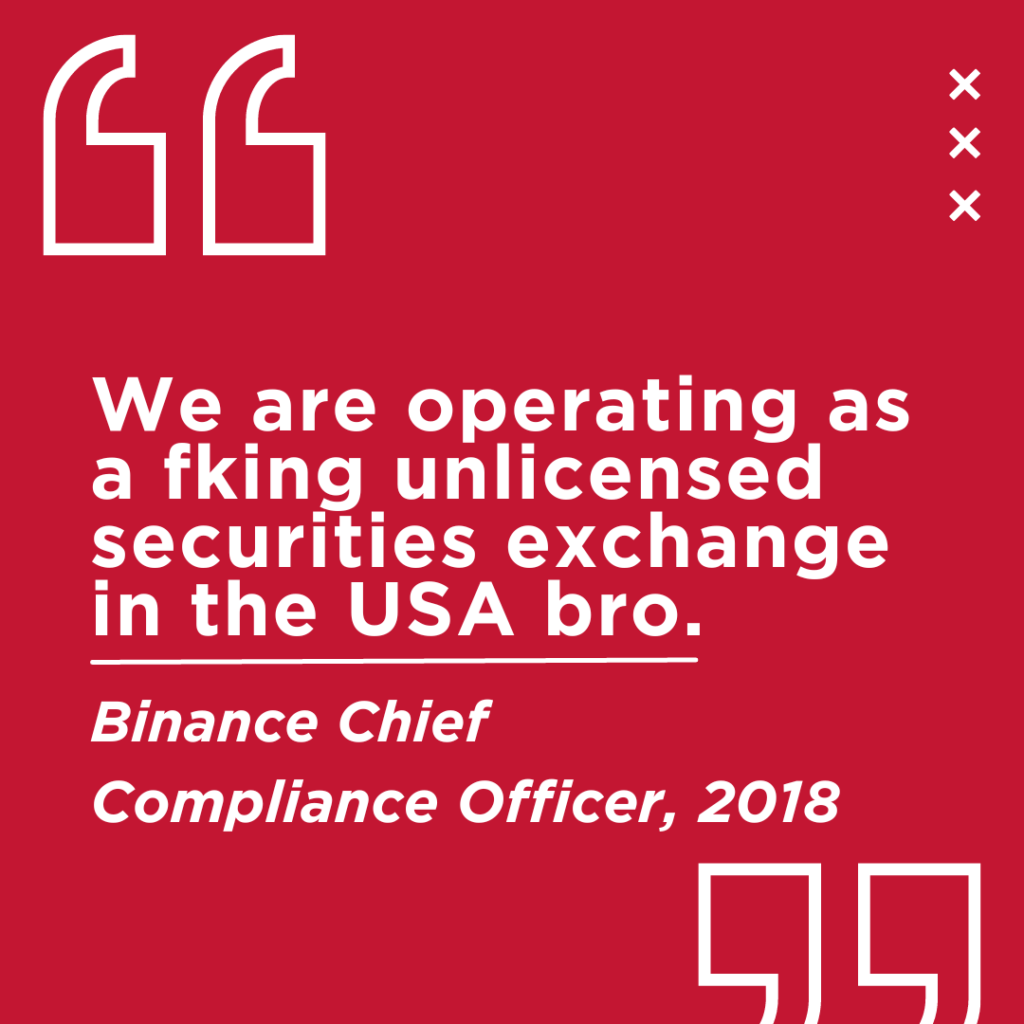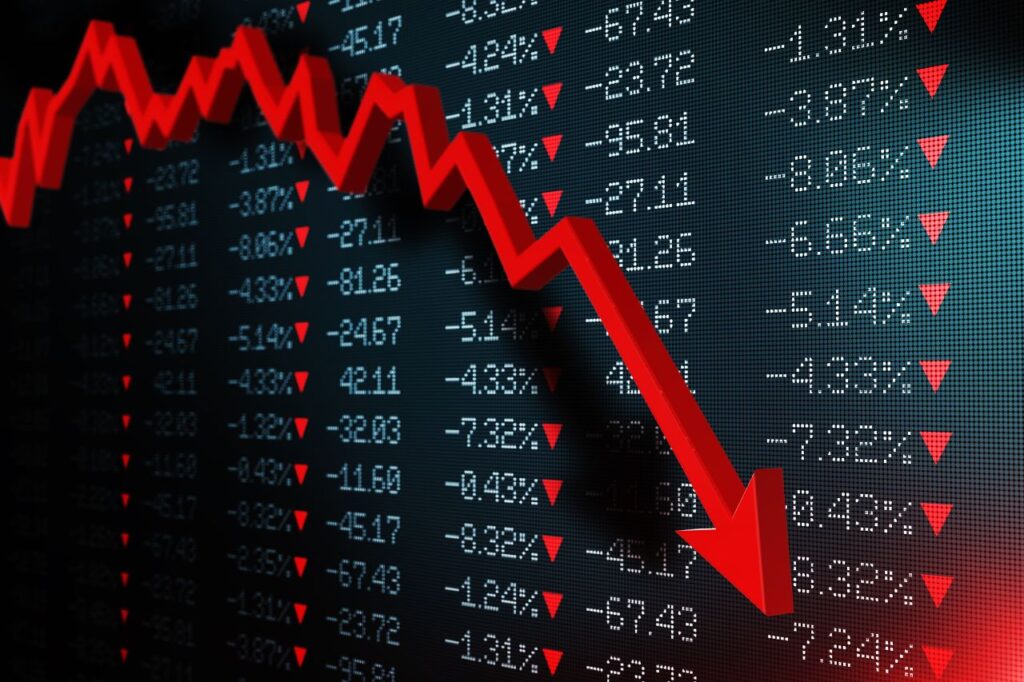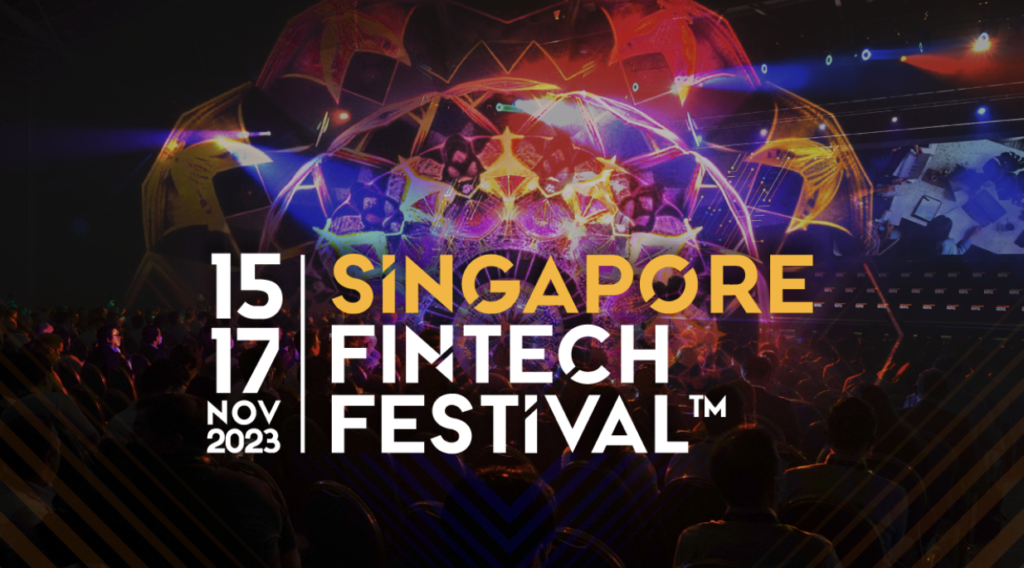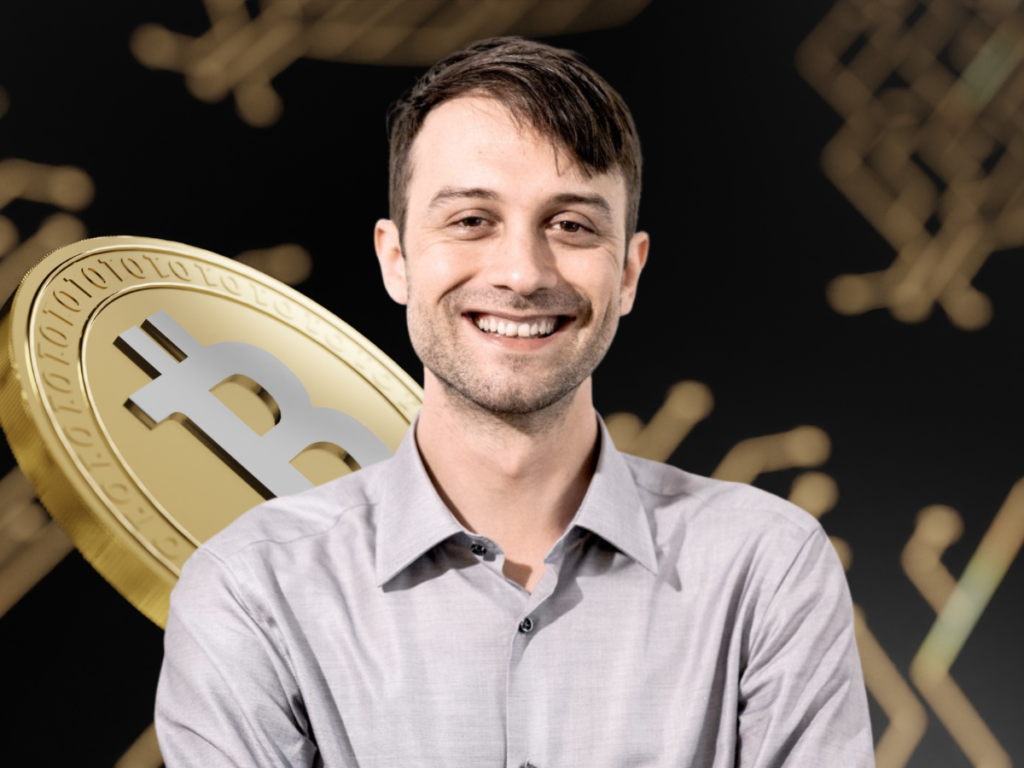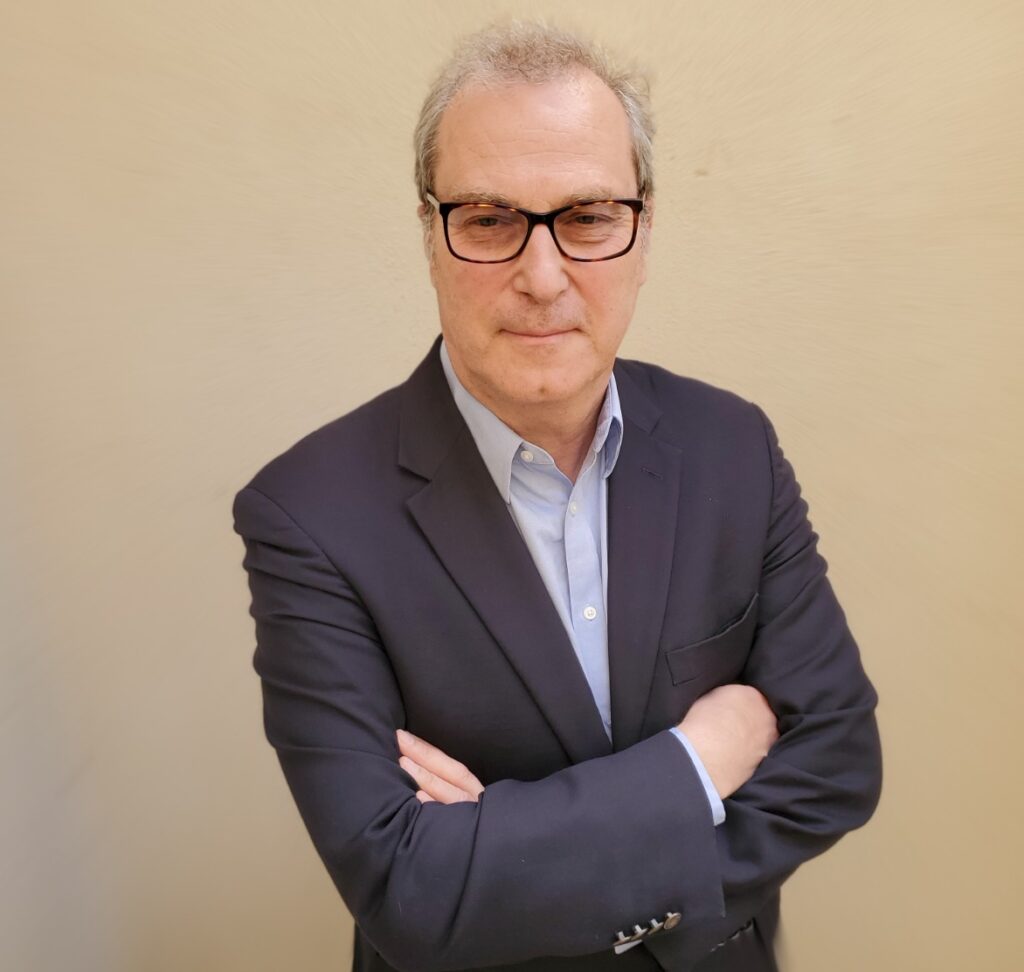Switching to the Satoshi standard and Lightning Network connectivity makes Bitcoin more tangible and easy to use. AAX has made the first move in the crypto space, already providing BTC to SAT
ADGM Launches Comprehensive Sustainable Finance Regulatory Framework to Propel UAE’s Net Zero Ambition
LiveAbu Dhabi Global Market (ADGM) has implemented its sustainable finance regulatory framework today, marking an essential step towards accelerating the UAE’s transition to net-zero greenhouse gas emissions. This framework comprises a broad range of environmental, social, and governance (ESG) disclosure requirements, as well as a regulatory system for sustainable funds, managed portfolios, bonds, and sukuks.
ADGM’s latest initiative harmonizes with the existing regulation of carbon offsets, contributing to the creation of the world’s first regulated carbon offsets exchange and clearing house in the region. This suite of actions underscores ADGM’s status as a front-runner in sustainable finance this year as the UAE prepares to host the 28th annual Conference of Parties (COP28).
The implementation of this framework, effective immediately, highlights the urgency of forwarding the green agenda in Abu Dhabi, the UAE, and around the world.
The sustainable finance regulatory framework, supported by robust public consultation, facilitates ADGM’s position as a natural base for sustainable finance operations. This platform addresses the rules for sustainable investment funds, managed portfolios, and bonds, and also includes ESG disclosure requirements for ADGM-registered companies. As such, the system is expected to foster the growth of a sustainable finance ecosystem and aid the UAE in achieving net zero emissions.
The infrastructure for green funds, portfolios, and bonds, coupled with sustainability-linked sukuks, represents a notable stride towards steering capital to fund the transition to net zero. ADGM will grant designations to compliant products and services, which can then utilize the ADGM “designation mark” in their promotional materials and customer communications. This seal of approval aims to instill investor confidence and stimulate further capital flow into the green transition.
Following the announcement, a feedback statement was issued, reflecting the constructive insights received and addressing the key points raised during the consultation phase. The overwhelming industry backing, including stakeholders who plan to launch products under the new framework, solidified ADGM’s decision to proceed with one of the region’s most holistic sustainable finance frameworks.
The feedback statement indicated that the industry’s involvement not only helped to mold the implemented framework, but also provided a clear insight into the areas that will be examined in a post-implementation review scheduled for 2025. As part of its commitment to constant development, ADGM will continue to rely on its stakeholders to shape its ecosystem into a world-class hub for sustainable finance.
His Excellency Dr. Sultan Al Jaber, President Designate of COP28 UAE, expressed his support, stating, “The lack of available, accessible, affordable finance is putting the world’s climate goals and sustainable development at risk. ADGM’s regulatory framework for sustainable finance is highly commendable and will play a vital role in mobilizing capital for the transition to net zero not only in the UAE, but also in EMDEs.”
His Excellency Ahmed Jasim Al Zaabi, Chairman of Abu Dhabi Global Market, added, “In the year that the UAE is hosting COP28, ADGM proudly aligns its actions with those of the country’s leadership. Our regulatory framework for sustainable finance is the most comprehensive in the Middle East and South Asia region.”
Ongoing initiatives by ADGM, such as the Abu Dhabi Sustainable Finance Declaration, the School of Sustainable Finance at the ADGM Academy, and the regulatory amendment allowing carbon offsets to come under its regulatory framework, strengthen the newly established sustainable finance regulatory framework. With these measures, ADGM distinguishes itself as a leading hub for sustainable finance.
Polimec and Deloitte Launch KYC Credentials for DeFi Fundraising
In a recent development that marks a significant stride towards regulatory compliance in decentralized finance (DeFi), Polimec, a decentralized funding protocol built on Polkadot, has joined forces with Deloitte Switzerland. The collaboration aims to issue reusable Know Your Customer (KYC) credentials to facilitate global digital asset fundraising. The move, announced on June 27th, 2023, also sets the groundwork for reducing the risk of fraud and hastening the advancement of Web3.
This venture introduces banking grade standard KYC credentials, issued by Deloitte, to simplify participation in early-stage fundraising on Polimec. The KYC credentials, secured on the KILT blockchain, offer an enhanced level of regulatory compliance, data privacy, and security.
The process ensures that users share their KYC documents solely with Deloitte, a trusted partner for major multinational corporations and governments around the globe. Deloitte Managed Services then issues the KYC credentials in Web3, the next evolution of the internet integrating blockchain technologies and decentralized systems, offering a more efficient and secure alternative to traditional KYC methods.
Kasper Mai Jørgensen, Co-Founder of Polimec, expressed his excitement over this milestone, “The fruit of our nine-month collaboration with Deloitte allows us to take one step closer to our vision of a Web3 world where individuals control their own data, identity, and destiny.”
The credentials, suitable for both individuals and legal entities, promise to revolutionize fundraising practices. Issuers can provide credibility during funding rounds, while participants can gain access to Polimec. This process paves the way for a more transparent fundraising environment compliant with regulations, where credential holders have control over their data.
Moreover, issuers can offer tokens to individuals/entities who have met the KYC/AML (Anti Money Laundering) standards, thereby reducing fraud risk and ensuring a secure and compliant investment setting. The move allows the participants to share their sensitive documents only with Deloitte, saving them time and reducing potential data breach risks.
Deloitte’s reusable KYC credentials promise a swift, secure, and compliant authentication experience for users. According to Micha Bitterli, Head of Deloitte Managed Services, this development signifies a significant move towards a compliant DeFi environment.
Thanks to the KILT infrastructure, KYC credentials can be verified at any given time. The verification is logged on the Polimec blockchain, assuring a regulatory-compliant, transparent, and secure process for all transactions while maintaining data privacy.
Ingo Rübe, Founder of KILT Protocol, was thrilled about Polimec’s evolution into a fully realized decentralized funding mechanism. The synergy between Protocols and Enterprises within the Polkadot ecosystem is credited for such innovation, fostering interoperability and shared security.
Polimec is slated to launch as a Polkadot parachain in late 2023, supporting the first projects in achieving their fundraising goals. Potential users are encouraged to join the waitlist to stay abreast of the latest developments and learn about this new way of performing KYC and managing data on chain.
SEC Charges Binance Entities and Founder Changpeng Zhao with Numerous Securities Law Violations – Lawsuit Highlights
Live- The Securities and Exchange Commission (SEC) has filed 13 charges against Binance Holdings Ltd., BAM Trading Services Inc., and their founder Changpeng Zhao, accusing them of several securities law violations.
- Allegations include operating unregistered national securities exchanges, broker-dealers, and clearing agencies.
- Binance and BAM Trading are also charged with the unregistered offer and sale of Binance’s own crypto assets, such as exchange token BNB, stablecoin Binance USD (BUSD), crypto-lending products, and a staking-as-a-service program.
- Zhao is also being accused as a controlling person for Binance’s and BAM Trading’s operation of unregistered national securities exchanges, broker-dealers, and clearing agencies.
- The SEC alleges that despite public claims, Zhao and Binance secretly allowed U.S. customers to continue trading on Binance.com and that they controlled the operations of the Binance.US platform.
- Binance and Zhao are also accused of mishandling customer assets, including commingling funds and diverting them to an entity owned by Zhao, called Sigma Chain, as well as to Merit Peak Limited.
- BAM Trading and BAM Management US Holdings Inc. are alleged to have misled investors about the non-existent trading controls on the Binance.US platform.
- The SEC accuses Binance entities and Zhao of conducting deceptive practices, conflicts of interest, lack of disclosure, and evasion of the law.
- The complaint filed by SEC alleges that since at least July 2017, Binance.com and Binance.US have operated as exchanges, brokers, dealers, and clearing agencies, and have earned at least $11.6 billion from transaction fees from U.S. customers.
- Binance is charged for the unregistered offers and sales of BNB, BUSD, and crypto-lending products “Simple Earn” and “BNB Vault.”
- The complaint alleges that Binance created BAM Management and BAM Trading to evade U.S. federal securities laws and maintained substantial involvement and control over the U.S. entity.
- The SEC claims that BAM Trading and BAM Management misled Binance.US customers concerning market surveillance and controls to detect and prevent manipulative trading on the Binance.US platform.
Circle Singapore Secures MPI License from MAS
LiveCircle Internet Singapore Pte. Ltd., an affiliate of Circle Internet Financial, LLC, has acquired a Major Payment Institution (MPI) license from the Monetary Authority of Singapore (MAS).
The license permits Circle Singapore to offer digital payment token services and to carry out both cross-border and domestic money transfers. One of the services it provides is the Circle Account, which facilitates institutional customers’ access to USDC, a digital dollar issued by Circle.
The attainment of the MPI license amplifies Circle’s role in the digital financial technology sector, showcasing it as a regulated entity. The achievement also marks a significant development for digital dollar currencies in Singapore and the wider Asia region.
The license enables Circle Singapore to utilize the expertise of its corporate affiliates, expanding its services and providing more value to clients and stakeholders. The company provides regulated digital currencies like the USDC issued by Circle.
Circle Singapore was officially opened in May 2023. Prior achievements include collaboration with Tribe, Singapore’s first government-backed blockchain ecosystem builder, in February 2023, and receiving In-Principle Approval as an MPI License holder from MAS in November 2022.
Binance and its U.S. Affiliate Experience $1.43b Withdrawals Following SEC Lawsuit, Reports Indicate
LiveApproximately $1.43 billion has been withdrawn from cryptocurrency exchange Binance and its U.S. subsidiary by investors as of Tuesday 11 a.m. ET (1500 GMT), according to data analytics firm Nansen. This follows a lawsuit filed against both exchanges by a leading U.S. regulator a day earlier. Nansen’s tweet showed Binance experienced a net outflow of $1.34 billion in crypto tokens via the ethereum blockchain, with Binance.US, its American subsidiary, witnessing a net outflow of $70.8 million.
The U.S. Securities and Exchange Commission (SEC) in 13 charges claimed that Binance manipulated its trading volumes, misappropriated customer funds, failed to limit U.S. customer access to its platform, and misled investors regarding its market surveillance measures.
The SEC lawsuit, which reveals a range of practices first highlighted by Reuters through multiple investigations of the exchange, signifies the most substantial move against a crypto firm by the SEC in its widespread clampdown on the industry this year.
In a Monday statement, Binance maintained that it has been actively collaborating with the SEC’s investigation and has “strenuously endeavored to respond to their inquiries and assuage their concerns”, including attempts to negotiate a settlement. The platform declared its intent to “defend our platform with fervor” in a blog post.
After a more than 5% drop the previous day, its most severe daily downturn since April 19, Bitcoin steadied itself. The largest cryptocurrency in the world last traded at $26,300, marking a 3.85% increase on the day.
Tony Sycamore, a market analyst at IG Markets, described the SEC suit as “another setback for the global crypto industry and crypto exchanges”.
Despite a 9.2% drop on Monday, its steepest daily dive since November, Binance’s BNB cryptocurrency, the world’s fourth-largest, rose 1.63% to $282.19.
The SEC complaint marks another in a sequence of legal challenges for Binance. The U.S. Commodity Futures Trading Commission (CFTC) sued the company in March, alleging operation of an “illicit” exchange and a “pretense” compliance program.
Artificial Intelligence to take centre stage at the Singapore FinTech Festival 2023
LiveThe Monetary Authority of Singapore (MAS) and Elevandi today announced the theme of the Singapore FinTech Festival (SFF) 2023 – ‘Applications of Artificial Intelligence (AI) in Financial Services’. SFF 2023 will focus on the growth and adoption of AI and how this technology can potentially be used in financial services. Organised by MAS and Elevandi, in partnership with Constellar and in collaboration with The Association of Banks in Singapore, this year’s SFF will be held from 15 to 17 November at the Singapore EXPO, with The Capital Meets Policy Dialogue™, Elevandi Insights Forum™ and the annual Innovation Lab Crawl taking place on 13 and 14 November. It will convene leaders from the government, financial services, investment, and technology sectors.
2023 will see the continued exponential growth of AI applications and adoption, with venture capitalist investments in Generative AI having reached a new high of US$2.6 billion in 2022 and with Generative AI seeing the fastest-growing consumer take-up in history. Leaders in the financial industry are keen to understand how AI can help build greater resilience in financial services.
SFF 2023 will examine how technologies such as AI and Web3, and digital public goods, can help to accelerate the transition to a low-carbon future and re-imagine the financial system architecture to better address the needs of the underserved. There will also be a focus on securing the digital economy against modern climate, technology, and cyber risks.
SFF 2023 will be divided into five thematic zones, with each zone hosting deep-dive dialogues and educational workshops, and showcasing innovative solutions by leading organisations:
- The Technology Zone will give participants a glimpse into current and future technologies shaping financial services, such as digital assets, and demonstrate the latest advancements in AI applications.
- The ESG Zone will spotlight the Environmental, Social and Governance financial services ecosystem, including financial institutions, real economy solutions, Internet of Things manufacturers and sustainable micro start-ups.
- The Regulation Zone is a space for international financial policymakers and regulators to exchange insights on their regulatory and development strategies, and will feature RegTech and SupTech solutions in the areas of regulatory compliance, cybersecurity and anti-money laundering.
- The Founders Zone provides a dedicated platform for financial services founders, entrepreneurs and investors worldwide to connect. SFF 2023 will also see the return of The Founders Peak stage, a popular platform where exceptional founders share insights on successful entrepreneurship.
- The Talent Zone will expand on the signature Talent Pavilion to advance learning, upskilling and the future of work by highlighting the talent development initiatives of the public and private sectors. The Zone will also include two hackathons – Global FinTech Hackcelerator and PolyFinTech100 – that will allow promising tech talent to showcase their capabilities.
The Capital Meets Policy Dialogue, Asia-Pacific Chapter, to be held on 13 November, will bring together policymakers, regulators and investors. Following the success of the inaugural Dialogue at SFF 2022, Elevandi will host the Africa Chapter of the Dialogue in Rwanda and the European Chapter in Switzerland in June 2023. This will be followed by the Asia-Pacific flagship Dialogue at SFF 2023, which will focus on policy and regulatory priorities as well as key areas of AI investment.
The Elevandi Insights Forum, scheduled from 13 to 14 November, will host deep-dive roundtables with public and private sector organisations to address challenges faced in scaling up digital finance, ranging from frictions in cross-border data flows to differing maturity in digital infrastructure. Last year’s Forum saw nine reports published based on the 22 roundtables led by public sector organisations such as the Asian Development Bank, BIS Innovation Hub, International Finance Corporation, and the International Monetary Fund.
In partnership with the National University of Singapore Asia Institute for Digital Finance, the ChatGPT and AI in Finance certificate programme will be launched for SFF pass-holders. It will comprise self-paced online classes and feature exclusive industry talks by industry luminaries at the Festival.
Participants can also look forward to the day-long Innovation Lab Crawl on 13 and 14 November and the SFF Global FinTech Awards gala event on 16 November.
Sopnendu Mohanty, Chief FinTech Officer, MAS and Chairman of Elevandi Board, said, “Innovations in technology continue to present us with powerful tools to enhance the global financial industry’s responses to economic and financial challenges. At SFF 2023, we have the opportunity to convene a global dialogue that will explore the potential of transformative technologies and policies for financial services, and bolster the FinTech ecosystem against future shocks.”
Chua Wee Phong, Group Chief Executive Officer of Constellar, said, “Catering to attendees and exhibitors both new and returning, we have created a cohesive visitor experience enabling stronger connections on the show floor with an important difference: It will be the first SFF to be powered by renewable energy entirely from the Festival venue at Singapore EXPO. This is a significant milestone in the SFF’s sustainability journey towards Net Zero in collaboration with like-minded partners.”11 SFF 2023 registration is now open. Complimentary passes are available for policymakers, regulators, think tanks, academics, coders and students. Start-ups can also enjoy discounted tickets.
China’s White Paper Signals New Opportunities for Hong Kong’s Digital Asset Industry
LiveBeijing’s Web3 White Paper and Hong Kong’s Crypto Regulations Provide Hope Amidst Global Regulatory Uncertainty
In a significant development for the digital asset industry, Beijing has released a white paper titled “Web3 Innovation and Development,” outlining its plans to foster innovation and advance the Web3 ecosystem. This move coincides with the recent introduction of new regulations for digital assets in Hong Kong, sparking renewed interest in China’s stance on cryptocurrencies and blockchain technology.
The white paper, unveiled by the Beijing Municipal Science and Technology Commission at the Zhongguancun Forum, acknowledges Web3 technology as an “inevitable trend for future Internet industry development.” With a vision to establish Beijing as a global innovation hub for the digital economy, the commission has committed to allocating a minimum of 100 million yuan ($14 million) annually until 2025. This investment underscores China’s ambition to position Zhongguancun, often referred to as China’s Silicon Valley, at the forefront of technological advancements.
China’s stance on digital assets has been characterized by a ban on cryptocurrency usage since 2021. However, with the release of the Web3 white paper, China appears to be signaling a potential shift in its approach to the crypto industry. The recent coverage of cryptocurrencies on state-owned China Central Television, featuring the Bitcoin logo and a Bitcoin ATM in Hong Kong, further adds to the speculation.
In the midst of global regulatory crackdowns on cryptocurrencies, Hong Kong has taken a contrasting approach. The city’s Securities and Futures Commission (SFC) has introduced new rules for “Virtual Asset Trading Platform Operators,” allowing licensed exchanges to sell highly liquid cryptocurrencies to retail investors. This move aligns with Hong Kong’s historical role as a gateway to mainland China’s markets and its enthusiasm for adopting blockchain technology.
To gain insights into the significance of these developments, we reached out to Ben Caselin, Chief Strategy Officer of MaskEX, for expert commentary. Caselin said: “For many years already, Hong Kong has been of global significance to the crypto ecosystem. In recent years, its position has been uncertain, but its recent opening up to Web3 – in other words, the digital assets economy – has put the city back on the world stage. Such a move could not have been made without the endorsement from Beijing, which is confirmed by recent reporting on Web3 by Chinese media outlets. While in the Chinese mainland activities involving digital assets remain strained, arguably in a concern of undesired outflow, Hong Kong’s opening up can be seen as a strategy to reinvigorate the Greater Chinese economy and elicit inflow and talent, and to stay competitive. This is good news for the region, especially given the regulatory stalemate in the US.“
The alignment between Beijing’s white paper and Hong Kong’s crypto regulations signifies a growing recognition of the potential benefits of digital assets. By establishing clear guidelines and safeguards for investors, Hong Kong aims to strike a balance between customer safety and fostering innovation in the virtual asset industry.
As the digital asset market continues to mature, institutional and retail adoption is expected to increase. The coordinated efforts of Beijing and Hong Kong in embracing Web3 and digital assets provide new opportunities for businesses and investors alike.
With Hong Kong’s proactive approach and China’s evolving stance, the region has the potential to become a thriving hub for digital asset innovation, offering a promising alternative for those navigating the rapidly changing global regulatory landscape.
Disclaimer: The information in this article is for informational purposes only and should not be construed as investment or financial advice. Always conduct your own research and consult with professionals before making any investment decisions.
MaskEX Aims to Drive Mass Adoption of Digital Assets and Strengthen Presence in MENA Region
LiveIn an exclusive interview, Ben Caselin, Chief Strategy Officer at crypto exchange MaskEX, discusses the company’s mission to promote mass adoption of digital assets, the importance of a holistic approach to this adoption, and how MaskEX is targeting the MENA and SEA regions. The exchange offers a comprehensive suite of products and services while working closely with regulators and governments. Caselin also shares insights on regulation, global expansion plans, and his perspective on Bitcoin’s recent surge.
MaskEX is on a mission to drive the mass adoption of digital assets. How do you see the future of digital assets, and what role do you see MaskEX playing?
When we talk about the ‘mass adoption’ of digital assets, we need to be quite holistic in our thinking. Of course, in essence, it refers to the idea that the majority of our economic activities come to be organized on the blockchain, or perhaps that humanity moves onto a Bitcoin Standard. However, at this early stage in the industry’s development, mass adoption needs to be more flexible at the conceptual level. So, we can think of people from all walks of life coming into the virtual asset space with different needs and varying levels of understanding; from so-called accredited investors, traders and hype-driven speculators to digital nomads who need easy payment solutions to everyday people who simply never had access to modern finance.
In this context, MaskEX offers a pretty comprehensive suite of products and services around digital assets, from spot and perpetuals to a wide range of fiat to crypto on- and off-ramps, including VISA-powered virtual cards. We are primarily targeting the MENA and SEA regions, working with institutional partners, but also building out the foundation for retail growth.
Because we enjoy a strong network of support, MaskEX holds a unique position, especially in the MENA region. And so, if we think of Coinbase as being on the US side and we place Binance, along with a few other big exchanges on the APAC side, then in due time MaskEX will certainly come to represent the MENA region as among the top-tier players.
I believe this is part of a healthy growth process of regional consolidation in the exchange space, where we can see different regions proliferate and liquidity become more regionally distributed. If we compare this to a decade ago, when more than 80% of all bitcoin spot trading occurred on one single exchange, namely Mt. Gox, then we’ve come a long way.
The digital asset industry is highly competitive, with new exchanges popping up every day. What sets MaskEX apart from its competitors, and how do you stay ahead of the curve?
While it’s true that there are hundreds of exchanges, both centralized and decentralized, throughout the years we’ve also seen the demise of many, from Mt. Gox to FTX, and we should expect such “culling” to continue for quite some time still.
Best practices are still being articulated and regulators are still finding their way into this industry, but at the same time we can see consolidation happening. It’s important now that as an industry we don’t regress to some form of monopoly, but instead build strong consolidated liquidity pools across different regions.
With MaskEX, we’ve invested heavily in our technology stack to make sure our systems are sound and robust. The exchange has a strong capital base with no reliance whatsoever on some kind of FTT-like platform token. Additionally, we take our relationships with regulators and governments seriously and we’re fully audited, which is crucial to long-term growth. This is something that will prove to be a very significant differentiator in the months to come.
Our approach enables us to offer a very comprehensive suite of products and services, some of which I am not able to disclose yet. Notable products are our VISA-enabled virtual card, which enables users to make online and offline payments with USDT for back-end settlement. More than digital assets alone, MaskEX also offers ample exposure to both US and Hong Kong stocks. Over the coming months, users will also be able to access more efficient fiat channels, at highly competitive rates.
Regulation is a hot topic in the digital asset industry. What is your take on regulation, and how do you see it impacting the industry and MaskEX specifically?
We have to look at these things at different levels of analysis. At a high level, if we take the bitcoin protocol, we can see it is already highly regulated by its own code and by a global community of miners and nodes. How Bitcoin operates is outside the scope of government and the usual arbiters of power – instead Bitcoin is decentralized and in the hands of many, never the few.
However, how is bitcoin presented to the public and promoted? Are people able to access reliable information to guard themselves against scam projects and Ponzi schemes? How are crypto tokens traded across different markets and how do we ensure these markets are free from manipulation? How is custody organized for both bitcoin and other crypto assets? In what ways are stablecoins protected against market stress and how can we ensure the underlying assets are actually in place to justify the peg? How do we ensure that crypto assets are not used for nefarious purposes without trying to bring it under the legacy fiat system which is itself famously susceptible to the very malpractice crypto is often accused of facilitating?
Obviously, at this stage in the development of the industry, it is very important to work closely with regulators and government bodies to come to a common view. In fact, such collaboration opens doors or, more specifically, they open the fiat channels necessary for the masses to transition into this newly emerging economy.
MaskEX recently announced its global expansion efforts. Can you tell us more about your plans for expansion, and which regions you are most excited about entering?
We are currently focused primarily on the MENA, CIS and SEA regions. The Middle East is especially ripe for disruption with Dubai, Abu Dhabi and the UAE at large leading in providing the most favorable conditions for innovation and adoption. In this context, we recently received the initial approval from the regulator in Dubai as part of our application for the full trade license. Once we do bring in this license, we will be able to unlock the opportunities that will prove to be game-changing.
Each jurisdiction has its own challenges and opportunities. In El Salvador, for example, there was a clear incentive to adopt bitcoin as legal tender to optimize remittances and reduce exposure to US fiscal policies. Hong Kong recently altered its stance and is rapidly opening up to the digital assets economy – this obviously serves to underscore Hong Kong’s positioning as a global financial hub between Mainland China and global financial centers in the West. It’s good to remember that despite more restrictive rules in the Mainland, Hong Kong’s bold move would not have happened without Beijing’s endorsement.
When we look at the UAE, it’s all about digitalisation and futurism. In adopting digital assets, the UAE will be able to further innovate around the concept of the “smart city”, boost its reach and influence in the wider region, optimize across remittances, payments, business, real estate and global trade, and attract foreign investment.
Bitcoin has been a hot topic in the news lately, with its price skyrocketing to new highs. What is your perspective on Bitcoin’s recent surge, and how do you see it impacting the digital asset industry?
Bitcoin remains one of the most important innovations of the century. We should applaud experimentation with blockchain, but we should not subscribe to the false idea that bitcoin is like the MySpace of the Internet – as if to say it has lost relevance. This is a narrative that some VCs, crypto exchanges and professors might want to push, mostly in service of their own needs and aspirations, but let us not be fooled.
Bitcoin is the reserve asset, the core index that underlies the entire crypto market and industry. It serves as a shield for the rest of the market and is the final safe haven. It exists as a viable and working alternative to the legacy system and as an antidote to monetary debasement.
Bitcoin has cautiously picked up some momentum again, especially since US banks have been under great duress, and since inflation is soaring almost everywhere. But let’s not be too focused on price at this time just yet.
Indeed “bitcoin is volatile”, but let us not fall in the trap of mistaking bitcoin’s volatility for anything else but the erratic policies of some Central Banks and the fact that the general public is only gradually coming to grips with deeper questions around the nature of money.
Wider market uptake across different types of digital assets, from new Layer 1 protocols or memecoins, can be attributed to the same underlying factors. It will take time for true price discovery to play out and only then can we see which protocols and projects have real staying-power.
These coming 12 to 18 months might prove to be the most interesting time in the digital asset space both in terms of resistance against its rise as well as the great strides made by those who strategically align themselves with this new ethos.
Ben Caselin is Vice President and Chief Strategy Officer of Crypto Exchange, MaskEX, headquartered in Dubai.
FinaMaze Appoints European Banking Expert Michael McManus-Schouchana to Lead European Expansion, Wins Best AI Investment Provider Award
FinaMaze announced the appointment of Michael McManus-Schouchana as a key member of the Advisory Board.
Michael, a renowned business development expert with over 20 years of international experience, will lead the charge in driving FinaMaze’s strategic growth and development in Europe.
Michael’s impressive resume includes working with prestigious companies such as Merrill Lynch and J.P. Morgan in the United States, as well as Capgemini, IBM, HP, and Oracle in Europe. Prior to joining FinaMaze, he held the position of regional partner manager at Temenos, where he oversaw Western and South Europe.
“FinaMaze is thrilled to welcome Michael to our team,” said Mehdi Fichtali Founder and CEO of FinaMaze. “His unique perspective and extensive knowledge of the European market will be invaluable as we expand our footprint across Europe. We look forward to the remarkable accomplishments we will achieve together.”
In addition to this exciting appointment, FinaMaze recently won the prestigious title of Best AI or Robo Investment Provider of The Middle East 2023 at the 3rd Annual Middle East WealthTech Forum & Awards. This significant recognition highlights the firm’s innovative and effective approach to asset management as The company’s AI-powered wealth management platform has proven to be a game-changer in the financial services industry.
According to a survey by Accenture, the demand for AI-powered wealth management solutions in Europe is on the rise. The survey, which polled 50 senior executives from banks and wealth management firms in Europe, found that 64% of respondents were already utilizing or intending to use AI-powered wealth management solutions within the next three years. Moreover, the survey found that 94% of respondents believe that AI-powered tools will become increasingly crucial in the wealth management industry over the next few years. These findings highlight the growing acceptance and demand for AI-powered investment solutions in Europe. FinaMaze’s expansion into Europe comes at a time when the market is ripe for innovative investment solutions that meet the needs of today’s tech-savvy investors.
Eurosystem has launched the new T2 wholesale payment system
- Eurosystem’s new real-time gross settlement (RTGS) system and central liquidity management tool went live on 20 March 2023
- New consolidated payment system successfully completed first day of operations
- Upgraded system to contribute to harmonisation and efficiency of Europe’s financial markets
The Eurosystem has successfully launched the new T2 wholesale payment system, which comprises an RTGS system and a central liquidity management tool. Migration to the new system took place between 17 and 20 March 2023. T2 has replaced TARGET2 as the new RTGS system for settling payments related to the Eurosystem’s monetary policy operations, as well as bank‑to‑bank and commercial transactions. TARGET2 processed payments worth €2.2 trillion per day on average. The first day of T2 operations went smoothly despite a delayed closure, the root cause of which was identified and fixed. The new RTGS system settled around 400,000 transactions, broadly in line with the average volume experienced before the migration.
The software and the environment for the new system were delivered by the Banca d’Italia, the Banco de España, the Banque de France and the Deutsche Bundesbank – the four national central banks that act as service providers for TARGET services (T2, TARGET2-Securities and TIPS). All Eurosystem central banks have supported their national communities throughout this project, and the successful launch reflects the commitment and efforts of all parties.
This project was initiated in December 2017 with the aim of harmonising and integrating TARGET services for the benefit of Europe’s financial markets and improving cost efficiency. The new system offers enhanced cyber resilience and optimises the use of liquidity, as participants are able to steer, manage and monitor liquidity in central bank money across all TARGET services. Harmonisation is achieved through a move to the ISO 20022 message standard, as well as a set of common components that are shared across TARGET services, bringing further cost savings for participants. Technical changes were made to TARGET2-Securities in July 2022 in preparation for the launch of the new T2 wholesale payment system, which brings the consolidation project to an end.
This project is part of the Eurosystem’s continued efforts to modernise market infrastructure, ensuring that it is future-proof and meets the needs and expectations of market participants, and further improving the efficiency of Europe’s financial markets.



